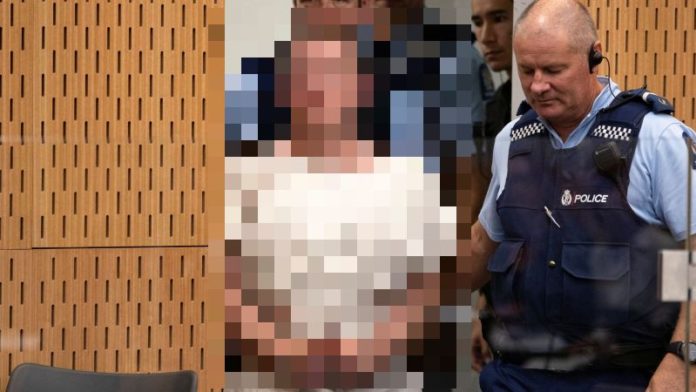Australian gunman Brenton Tarrant who was involved in Christchurch New Zealand mosque attack on Friday 15 Mar 2019 will face 50 murder charges and 39 counts of attempted murder, police have confirmed.
Brenton Tarrant first hearing in the High Court will be held 05 Apr 2019 Friday, after first appearing in the Christchurch District Court on 16 Mar 2019 Saturday.
Brenton Tarrant was initially charged with a single, representative count of murder in the aftermath of the shooting, while police continued their investigations.
Brenton Tarrant is being held in New Zealand’s only maximum security prison, in Auckland, and has had no access to television, radio, newspapers or visitors.
Brenton Tarrant will appear in court via audio-visual link on 05 Apr 2019 Friday for what will be a “relatively brief” hearing.
Despite labeling the shooting an act of terrorism, authorities had not said whether the former NSW resident would be the first person charged under New Zealand’s anti-terror laws.
The country’s terrorism legislation has in the past proved unwieldy and complex, and legal experts have said terror charges may just complicate the prosecution for no material difference in outcome if Brenton Tarrant is convicted.
“Other charges are still under consideration,” the police said on Thursday.
Judge Cameron Mander said in a note that the brief hearing will mainly be about Brenton Tarrant’s legal representation.
Brenton Tarrant dismissed his assigned layer who was supposed to represent him on Friday’s first court appearance, saying that Brenton Tarrant wanted to represent himself.
Many are worried that Brenton Tarrant would use this opportunity to push his white supremacist views.
New Zealand tightly restricts what can be reported about upcoming court cases to avoid tainting the views of potential jurors.
The judge said he had received applications from 25 media organizations to take film, photographs or audio recordings of the hearing but he denied all of them.
The judge said reporters could remain throughout and take notes.




















